Can Dogs Eat Dried Cranberries?
Now, as a pet parent, you’ve probably wondered, “Which tasty morsels from my plate can I safely slide to my fur friend?” Well, let me introduce dried cranberries into the mix. Yep, that’s right, folks, these little gems are not just great in your cereal or muffins — they’re a fabulously safe and healthy doggie choice too! But like most things in life, moderation is the rule.
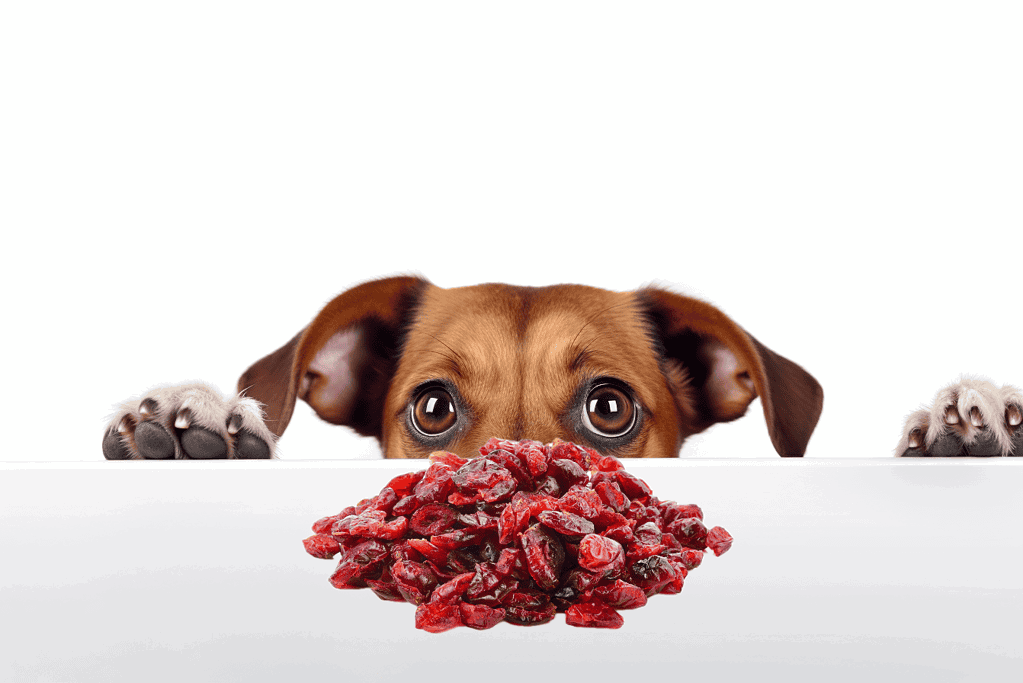
Cranberries, in all shapes and forms – fresh, cooked, or dried – are basically a pup’s fruit wish come true. They’re like nature’s multivitamin, bursting with yummy goodness and crammed with sickness-busting nutrients. But before you release your hounds on a pack of dried cranberries, you’ve got to make sure these dried beauties don’t have any added sugars, preservatives, or that sneaky stuff called xylitol.
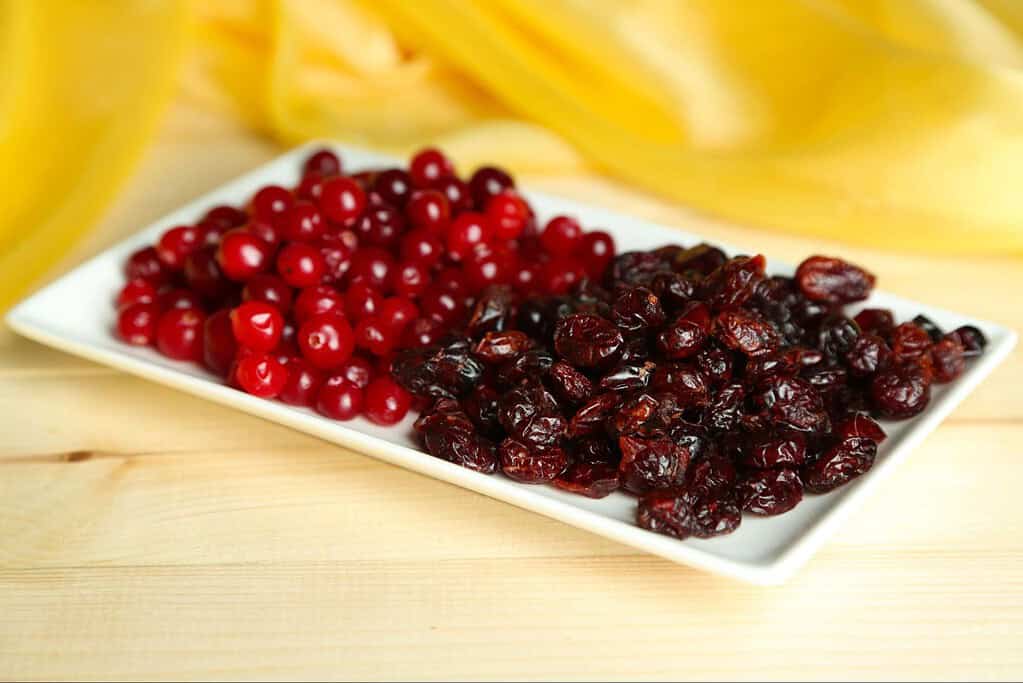
Give your dog a cranberry treat here and there, but don’t make it a cranberry feast every day, and your fur pal will be one happy, cranberry-crunching camper!
Nutritional Benefits of Dried Cranberries
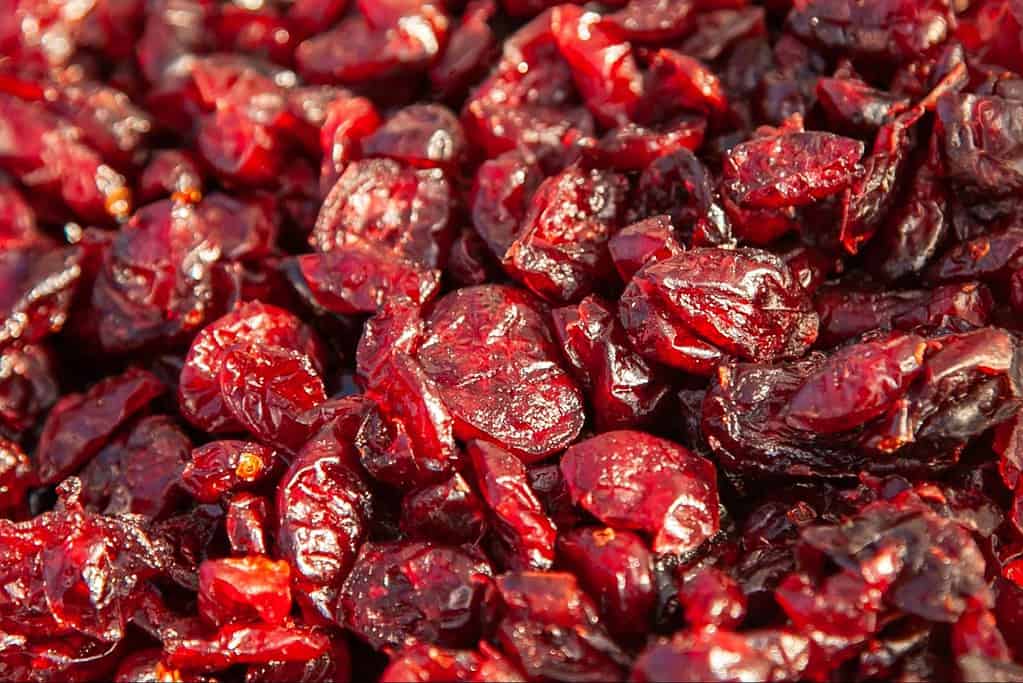
Ever give a thought to the humble dried cranberry? These teensy, somewhat wrinkled berries are an absolute goldmine of nutrition. Don’t let their size fool you – they’re loaded with vitamins, minerals, antioxidants, and fiber that do wonders for your and your fur pal’s health.
Vitamins in Dried Cranberries
Pop open a dried cranberry, and you’ll find it filled to the brim with essential vitamins. You’ve got Vitamin C, which is like a personal bodyguard for the immune system and assists with various processes in the body. Then there’s Vitamin E, the supreme knight of antioxidants, vigilantly guarding cells from damage and keeping a well-functioning immune system.
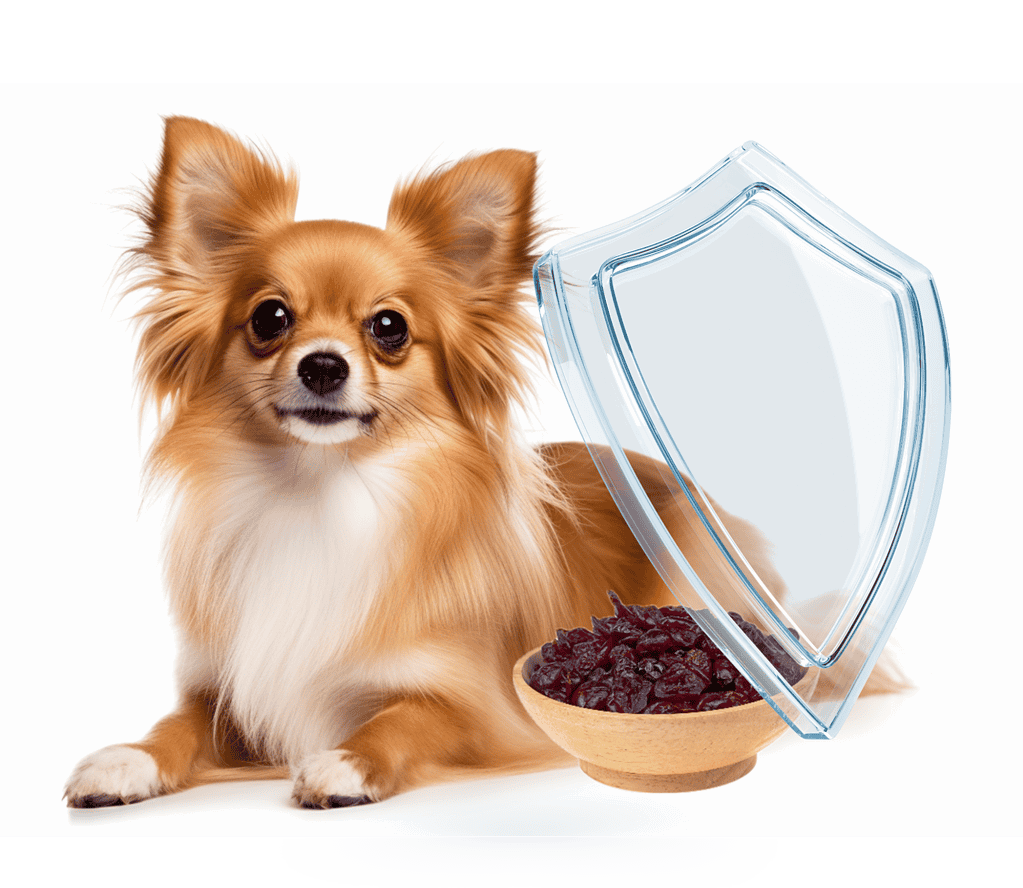
But wait, there’s more! You’ll also find Vitamin K crucial for clotting blood and maintaining bone health. Next up is Vitamin B5, also known as Pantothenic Acid, which incredibly aids in energy production and ensures a healthy nervous system. And last but not least, Vitamin B6, the jack-of-all-trades, which aids in metabolizing amino acids, producing neurotransmitters, and forming red blood cells.
Antioxidants in Dried Cranberries
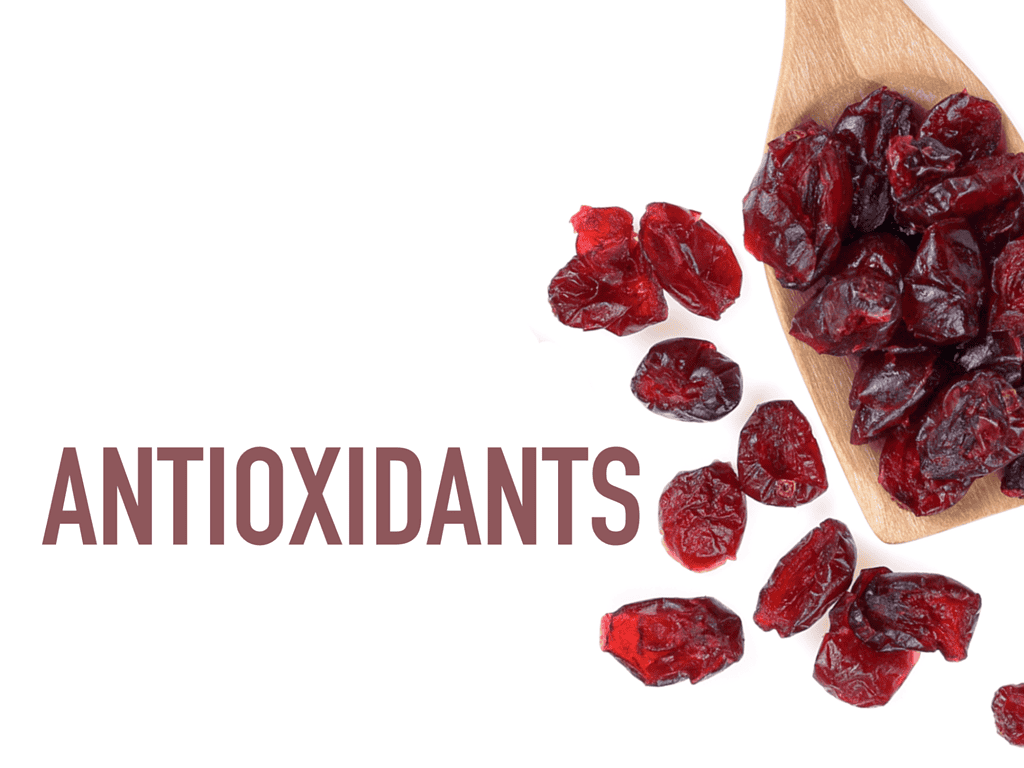
Did I mention dried cranberries are chock-full of antioxidants too? These pieces of tart delight are your cells’ best defense. They have Vitamins C and E. Not just resting on their vitamin laurels, they diligently work double duty by neutralizing harmful free radicals. And the Polyphenols, whose superpowers include hefty anti-inflammatory and antioxidant effects.
Fiber in Dried Cranberries
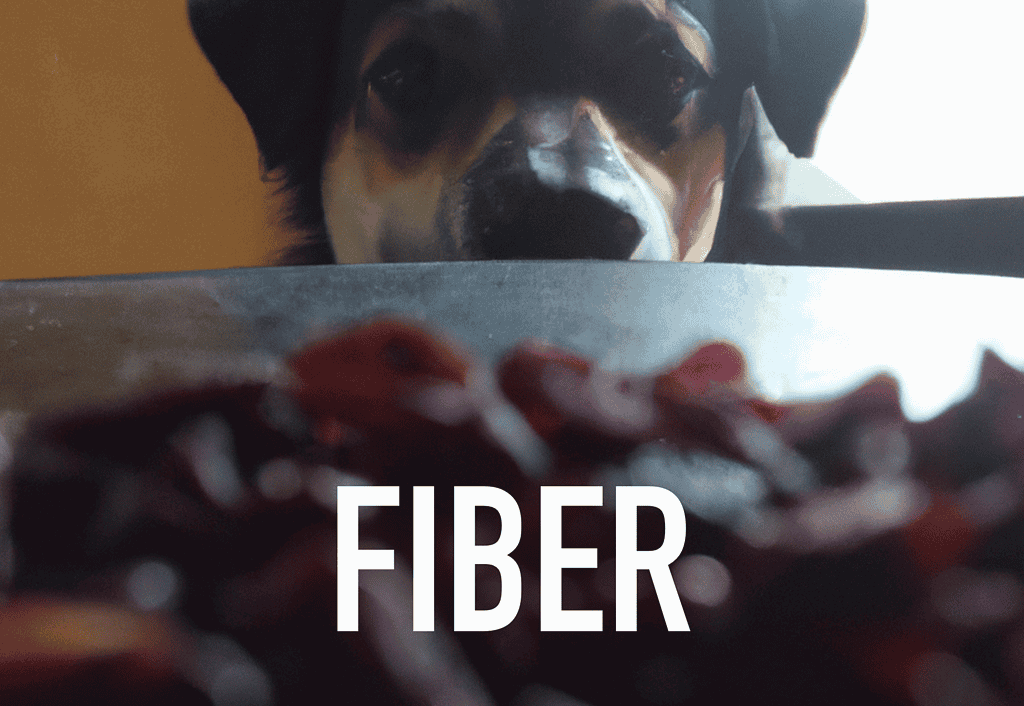
And of course, fiber! Dried cranberries are a good source of fiber, providing both soluble and insoluble types. Fiber plays an essential role in maintaining digestive health and regulating bowel movements. Soluble fiber helps manage blood sugar levels and lower cholesterol.. Meanwhile, insoluble fiber adds bulk to stools and prevents constipation.
To wrap this nutritional super berry story up, dried cranberries offer a wide array of benefits, ranging from immune system boosting to urinary tract support, making them an all-round health star for your pooch. However, remember to keep it clean and sweetener-free when sharing these berry treasures with your fur friend!
Potential Health Risks of Dried Cranberries
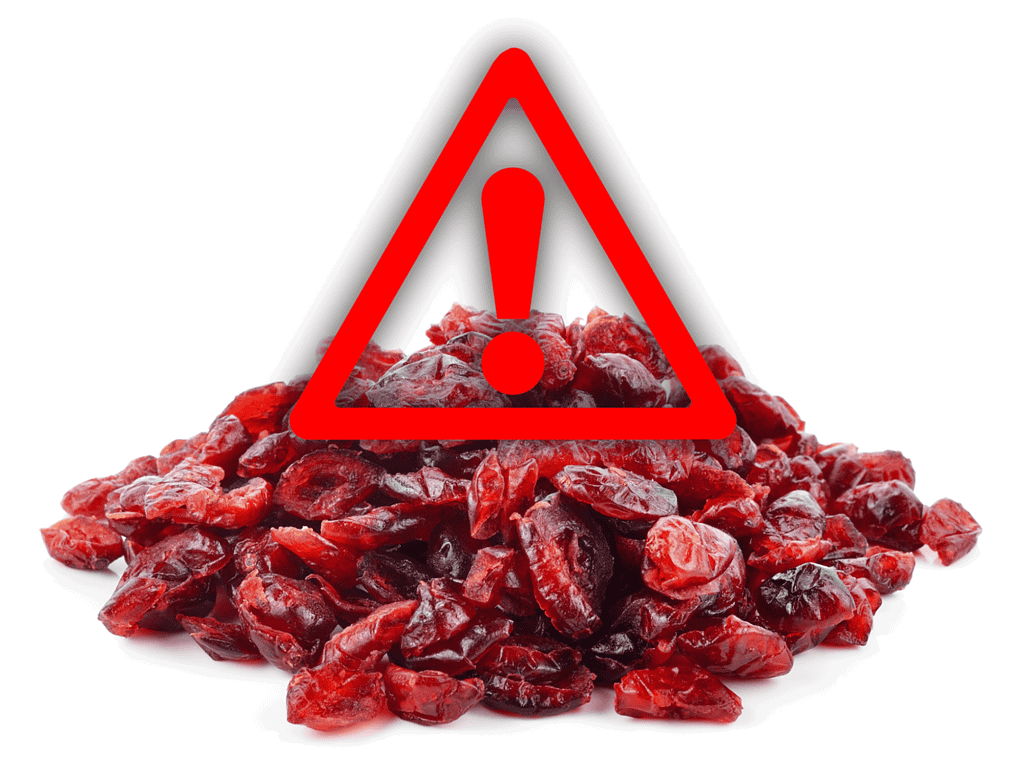
Hold onto your leash, folks! While dried cranberries can be a safe, healthy snack for your fur buddy, there’s a few caution signs on the furry road to cranberry-ville you’ll want to be aware of.
Sugar Content in Dried Cranberries
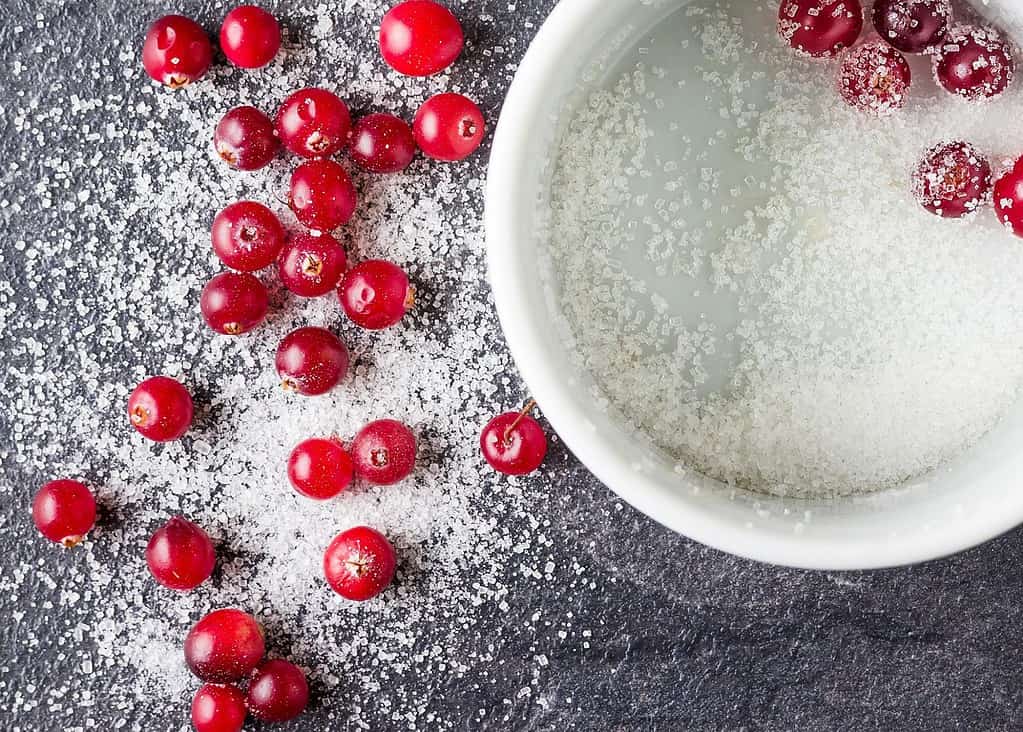
First up, let’s talk sugar. We all know sugar, right? That sweet enemy we love to hate. A smidgen of it is generally safe for dogs, but you gotta be cautious of dried cranberries with added sugar. Excess sugar can dunk your pooch into various health issues like obesity, dental issues, and diabetes.
Dried Cranberries and Diabetes in Dogs
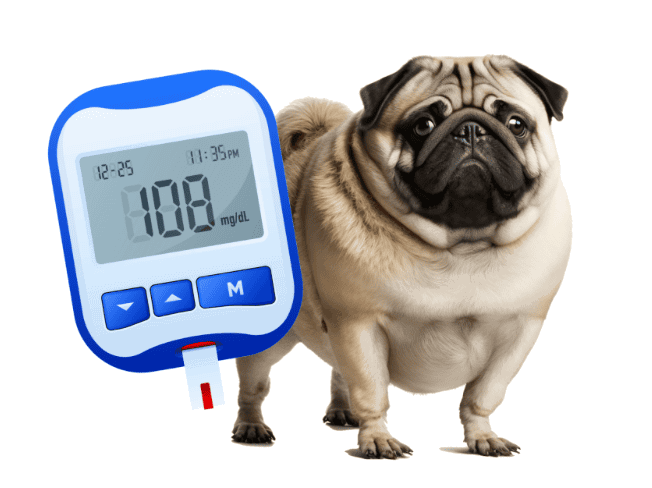
Speaking of diabetes, it’s not a fun friend for dogs. The condition makes your fur pal’s body forget how to regulate blood sugar levels right. A diet high in sugar, including sugar from dried cranberries, can contribute to the development of diabetes, especially if other risk factors, such as obesity, are present. So, keep those cranberries sweet yet savvy to avoid stirring up that diabetes pot!
Dried Cranberries and Dog Allergies

Just like some humans don’t do well with gluten or dairy, some dogs might be allergic to cranberries. An allergy might pop up in the form of itching, rashes, or gastrointestinal problems – none of which you or your fur friend want. Nix any potential allergic reactions by checking with your vet if your pet shows any funny symptoms after snacking on dried cranberries.

Remember, it’s not just the cranberry itself that could cause rough times. Suspect sugars, preservatives, and artificial villains like xylitol can turn cranberry treats into a bit of a nightmare. So, keep the cranberries clean and your pooch’s tail will continue to wag!
Enjoying this read?
We publish this content for free to generate interest in our Premium members' area. By subscribing, you can ask the writer any questions related to pet care and this article, get access to 100+ Premium Pet Care Guides and go Ad-Free with DogFix Premium for $2.99.
Can Dogs Have Cranberry Juice or Cranberry Sauce?
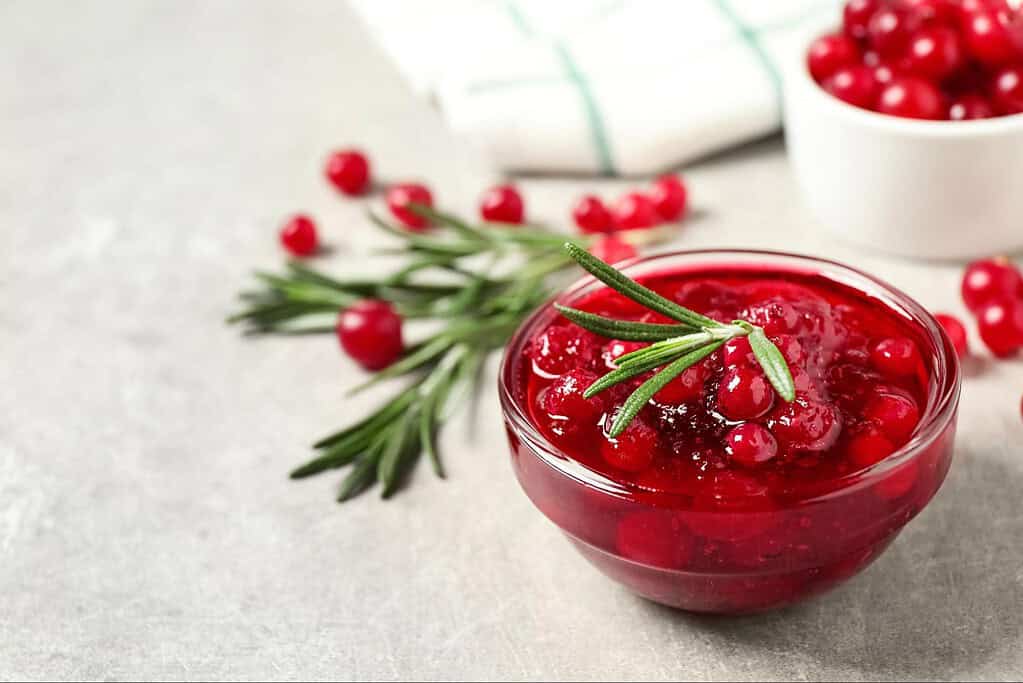
Dogs’ consumption of cranberries should be approached with caution. While plain, fresh, or cooked cranberries can be safe for dogs in moderation, there are potential risks associated with cranberry juice and cranberry sauce.
Cranberry Juice
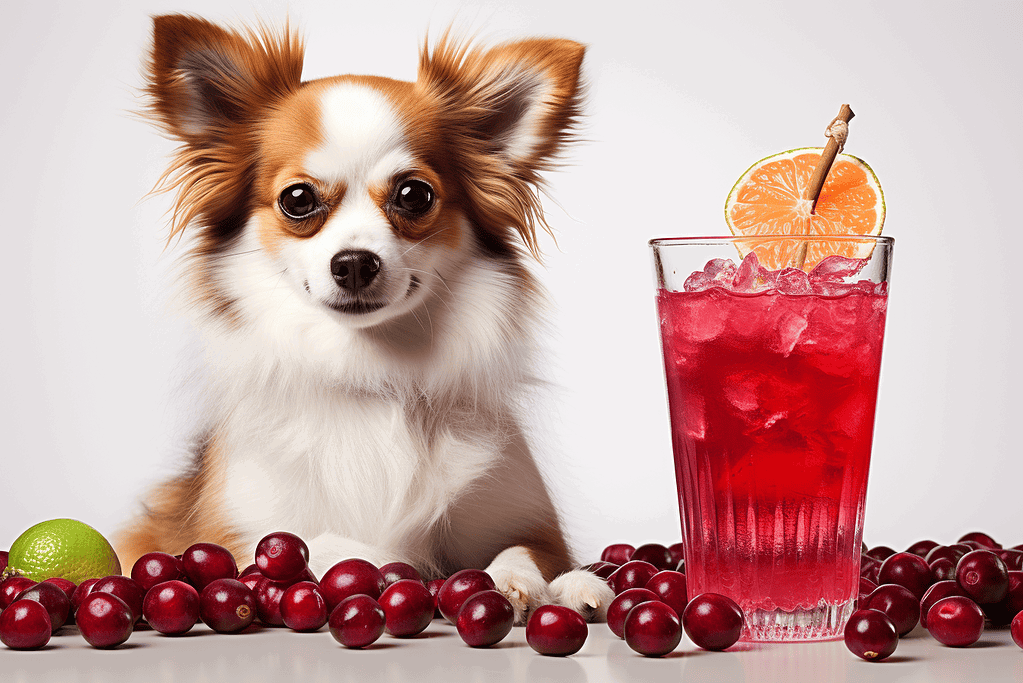
If you ever thought of filling your pooch’s bowl with cranberry juice, hold your horses! Cranberry juice is often loaded with way too much sugar, can be harmful to a dog’s gastrointestinal system, and contribute to weight gain. And if that’s not enough, they usually toss in artificial sweeteners and preservatives. These can lead to problems ranging from tummy troubles to weight gain and severe health issues. So, let’s cross cranberry juice off the doggie menu.
Cranberry Sauce
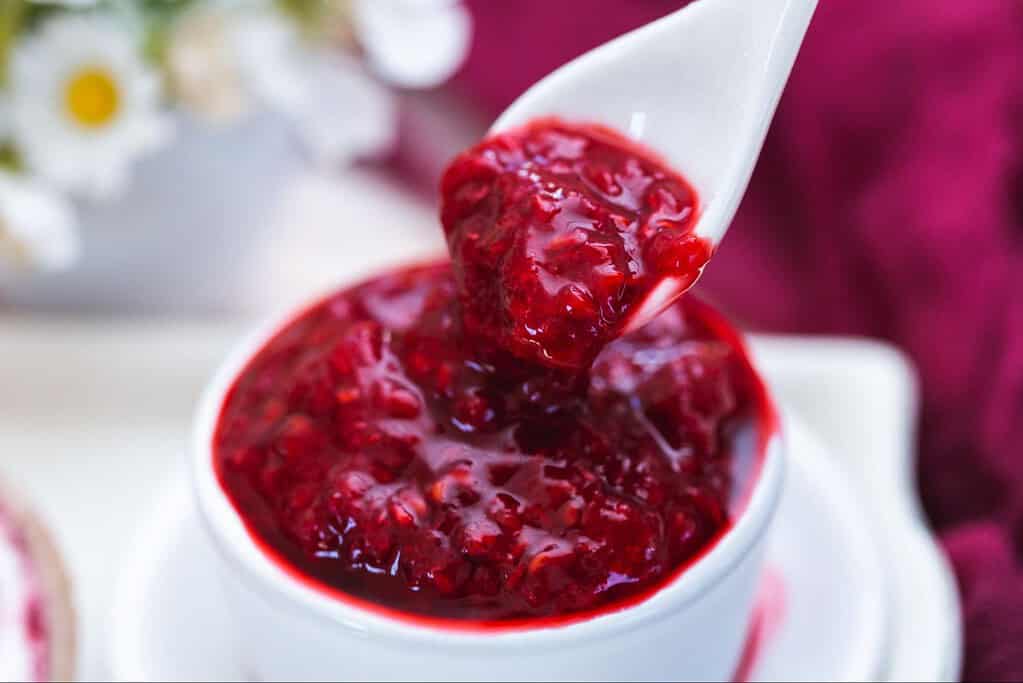
And how about cranberry sauce? Normally, cranberry sauce is a party of cranberries, sweeteners like sugar or corn syrup, and some nice spices. A delightful mix for our taste buds, but for your dog? Not so much. Those added sweeteners bring the same sugar trouble as cranberry juice, and if there’s alcohol in that sauce, it’s a big red flag. Alcohol and dogs are a dangerous mix, leading to anything from intoxication to seizures and even life-threatening situations.
At the end of the day, remember your fur pal isn’t just a mini-human. Their body reacts differently to foods, and what seems harmless to you could cause problems for them. If you do decide to share plain, fresh, or cooked cranberries with your pooch, make sure it’s all in moderation, with no added sugar, spices, or preservatives. And as always, when in doubt, give your vet a shout before adding any new food items to your dog’s dish.
Using Dried Cranberries for Dog’s UTIs
Can cranberries help with your fur friend’s Urinary Tract Infections (UTIs)? It’s a fair question! While dried cranberries definitely fly in the safe-and-healthy-snack club for dogs without posing the same risks as nefarious raisins, their role when it comes to pee problems in your pooch isn’t crystal clear.
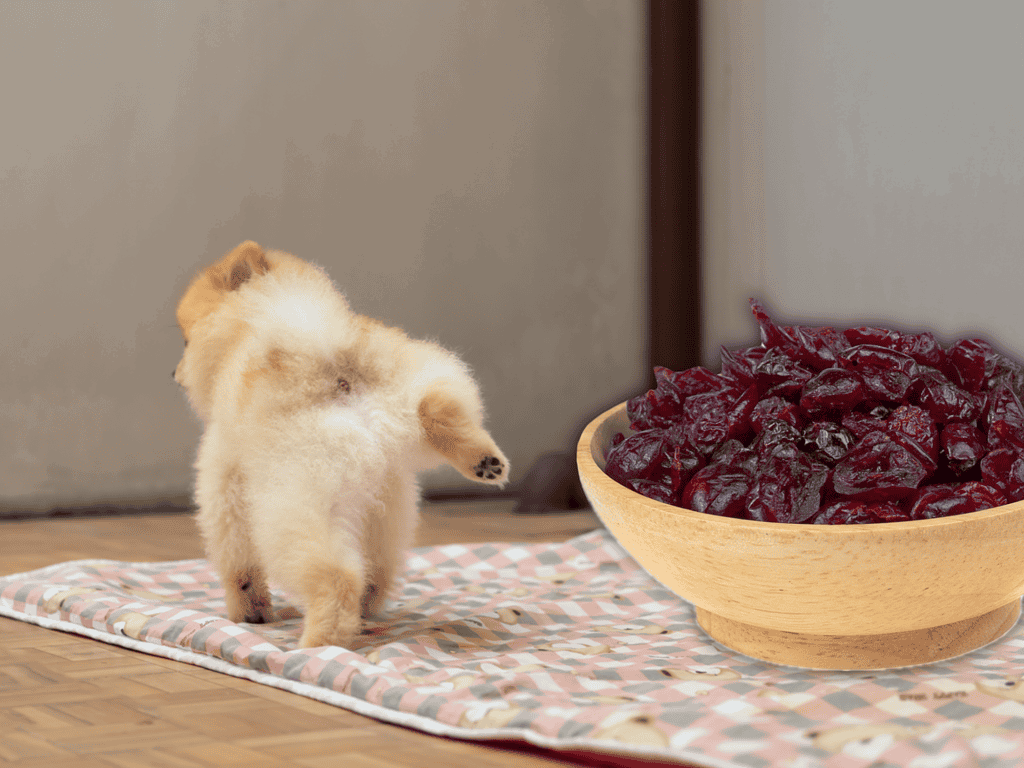
Cranberries have been considered a folk remedy for human UTIs, but studies have not shown conclusive evidence to back this claim. Moreover, studies involving cranberries and dogs are even scarcer. Given the limited research, it is essential to consult a veterinarian before using dried cranberries as a supplement for dogs experiencing UTIs.
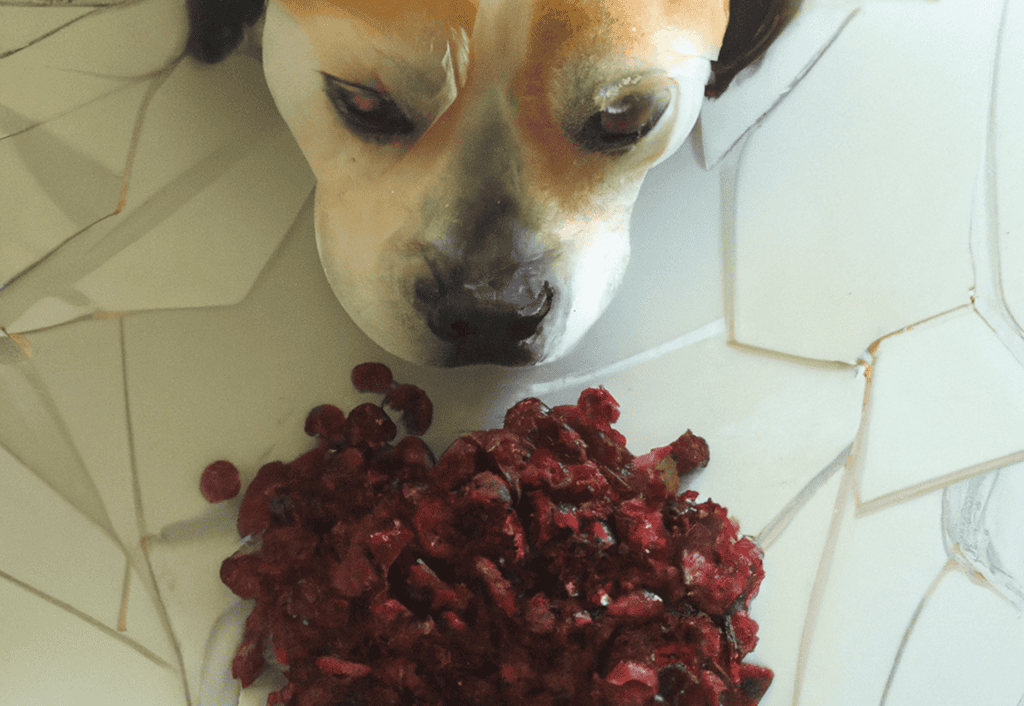
While a cranberry snack here and there can put a wag in your dog’s tail and are certainly a healthy part of their diet, UTIs are a different bowl of kibble entirely. When it comes to diagnosing and treating UTIs, you really need to let the professionals lead. A vet will likely recommend the right antibiotics or medications to kick that infection to the curb, and they might even suggest some special diet or supplement choices designed to keep UTIs at bay.
To sum it up, the story of dried cranberries and UTIs in dogs is still a bit blurry. They’re a great treat, no doubt – but their ability to save the day when it comes to UTIs is undetermined. So, while your dog enjoys the cranberry delights, leave the UTI fight to your trusty vet!
Cranberries and Canines: Your Questions Answered
Let’s clear up a few cranberry questions that might be ripe in your mind!
To Feed or Not to Feed: Dried Cranberries for Dogs
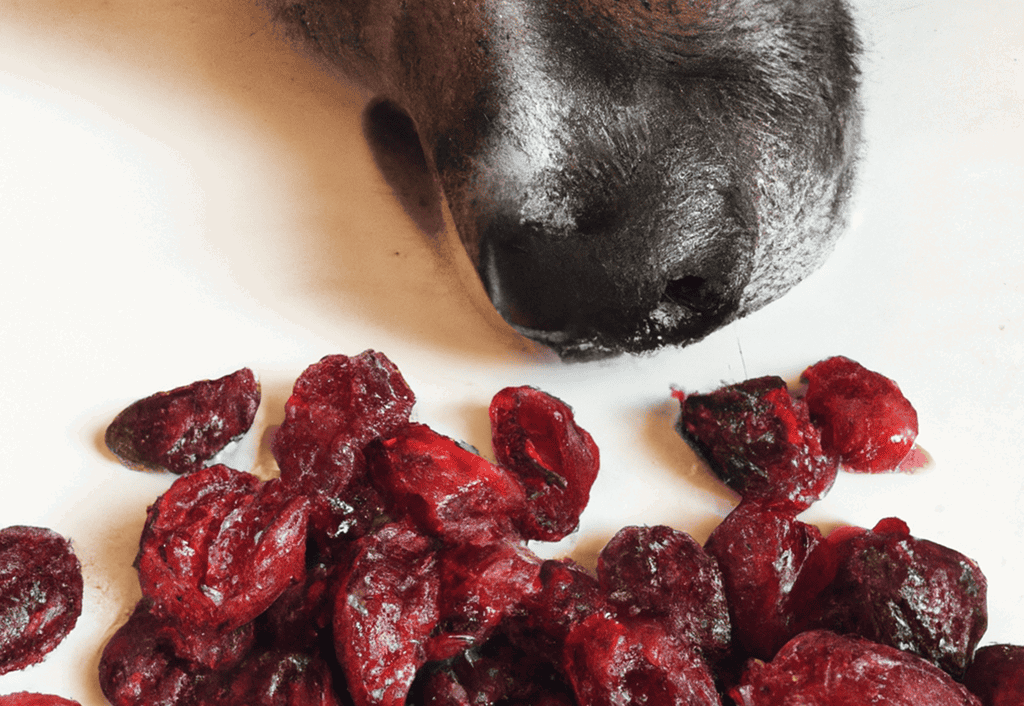
Yes, you can! Dried cranberries get the green light. But, break out your detective glasses and ensure there’s no sneaky sugars, nasty preservatives or super toxic stuff like xylitol hiding on the ingredient list before tossing them your fur pal’s way.
How Often Can Pooches Enjoy a Cranberry?
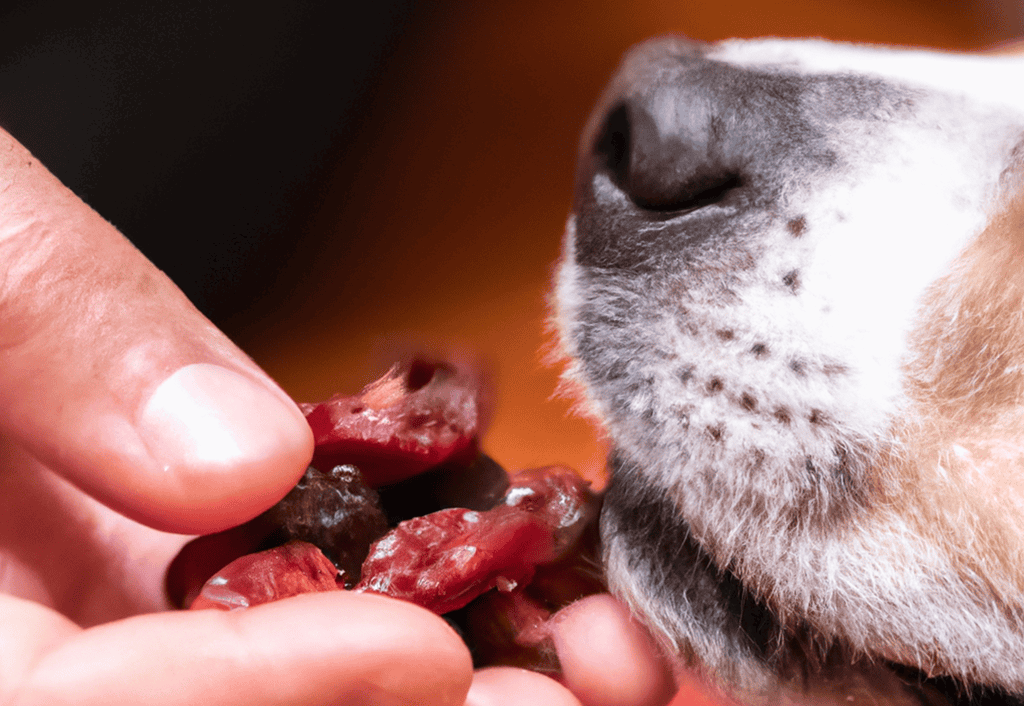
Think of dried cranberries as a now-and-then treat. Small portions, big delight! Whether you’re sneaking a cranberry or two into homemade dog food or placing it as a prize at the end of a good fetch, moderation is key. And new food always calls for a watchful eye. Run this by your vet to be sure about the right portions.
Are Cranberries the Secret Potion for UTIs?
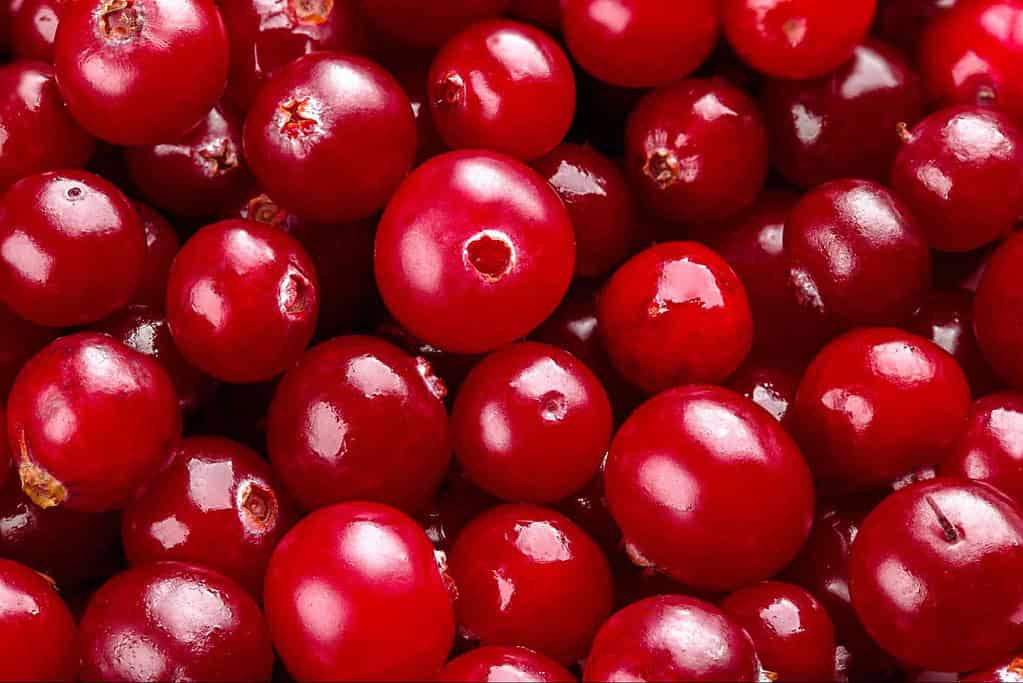
Ah, the old cranberry-UTI connection. In the human world, cranberries are known for boosting bladder health and possibly warding off UTIs, but in dogs, the verdict’s still out. It’s best to play it safe and discuss this with your vet if your fur friend has any urinary issues.
Is Cranberry Juice Dog-Approved?
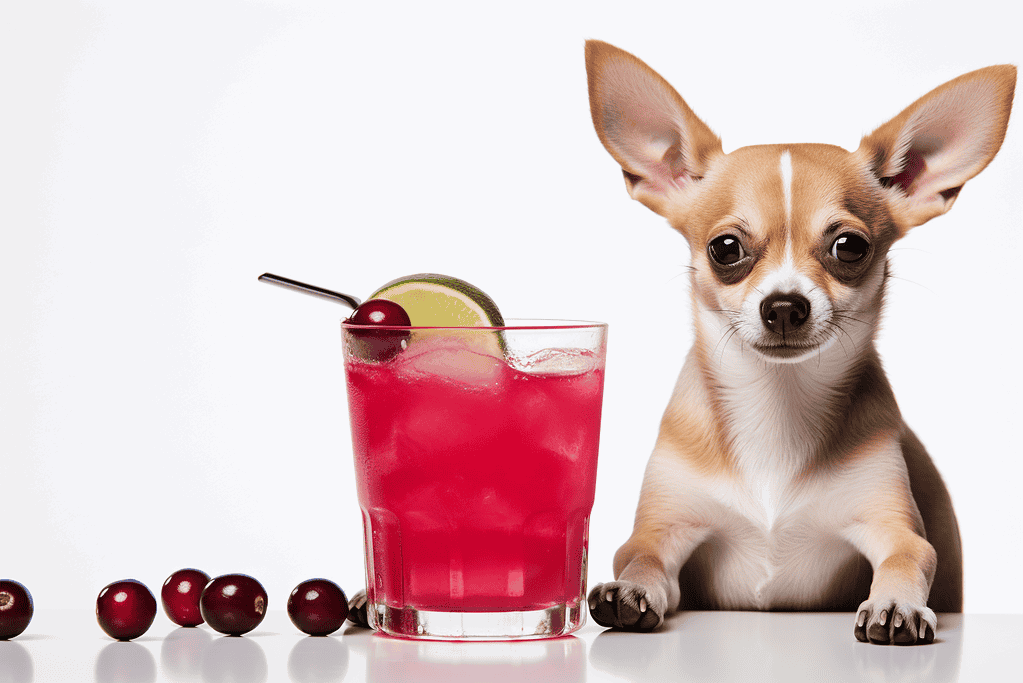
Not quite. Despite our love for cranberry juice, for your pooch it’s a no-go zone. It’s usually filled with added sugars and could have something that doesn’t sit well with their tummies. So, let’s keep it simple and stick to raw, cooked, or dried cranberries instead.
What’s the Best Way to Prep Cranberries for Dogs?
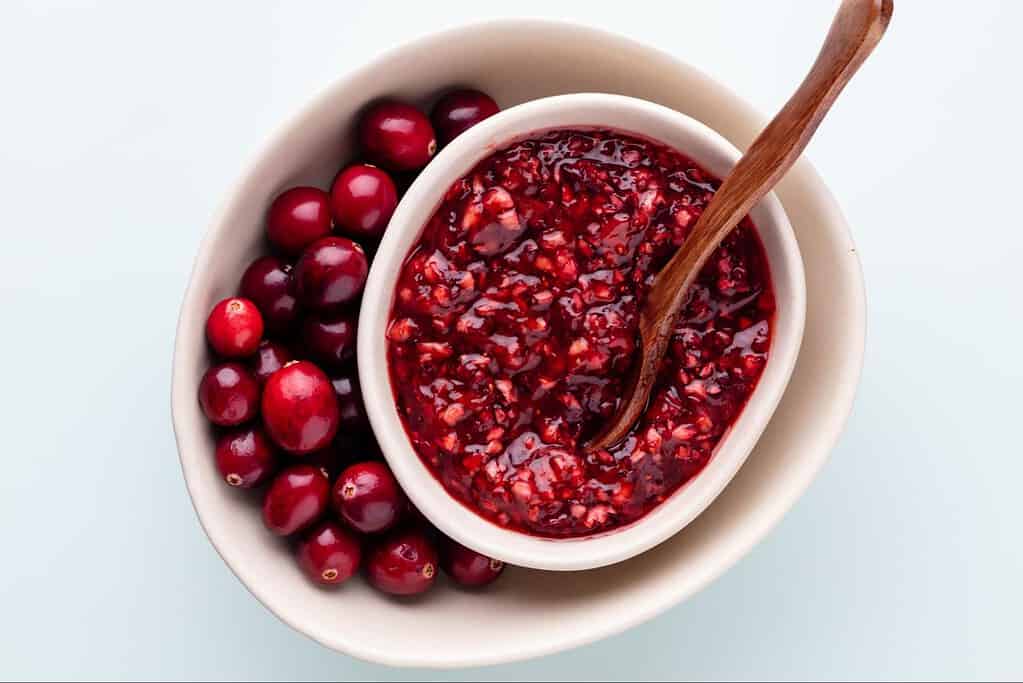
Here’s the great part – you can feed them raw, cooked, or dried. Just make sure you’ve removed any extra sugar or preservatives. You could even use them as a special ingredient in homemade dog treats. Sweet and healthy- now that’s a win-win!
Can Dogs Have Cranberry Sauce?
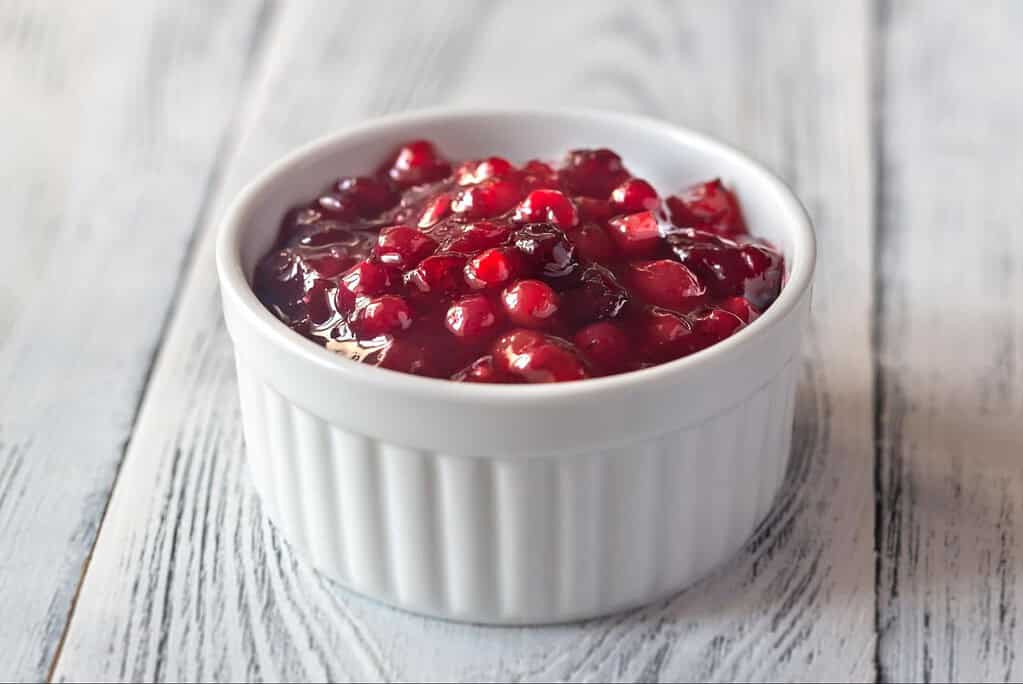
Cranberry sauce might look tasty, but for your dog, it’s more of a danger zone. It’s usually candy-sweet and could contain harmful extras. Keep it safe and satisfying by choosing raw, cooked, or dried cranberries as dog-friendly choices, and always keep an eye on your fur friend when introducing new food items.
What You Need To Remember
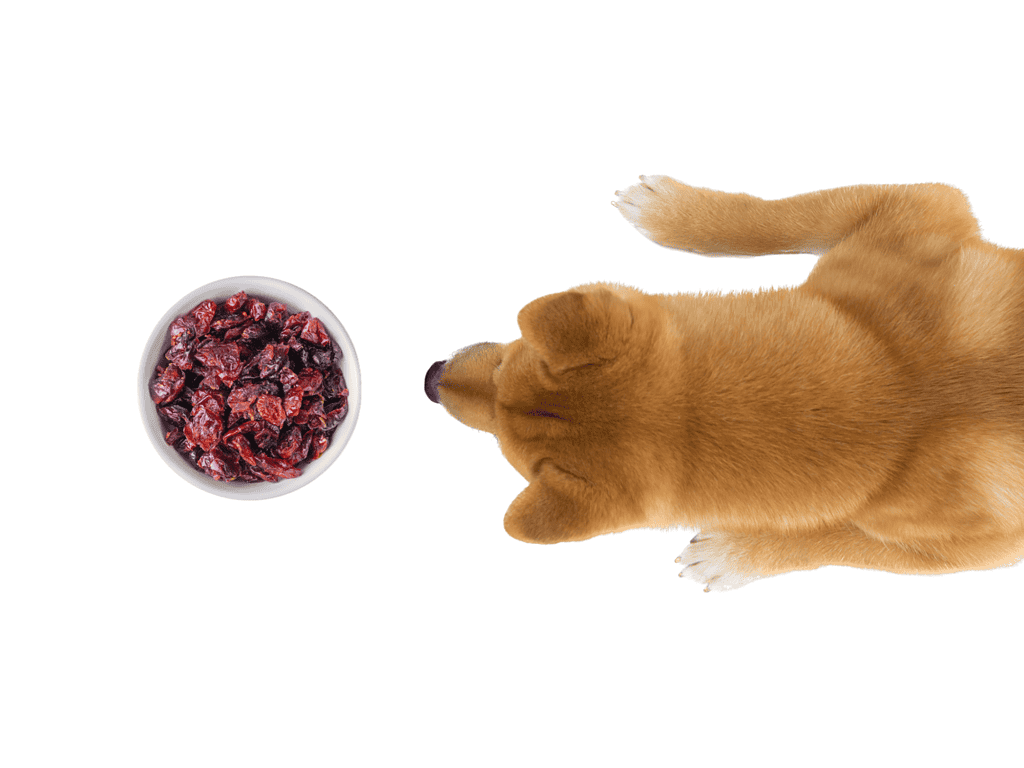
- Dried cranberries can be a safe and nutritious treat for dogs when given in moderation.
- Ensure the cranberries do not contain added sugars, preservatives, or toxic ingredients like xylitol.
- Avoid giving dogs cranberry juice or cranberry sauce, which may contain harmful additives.
